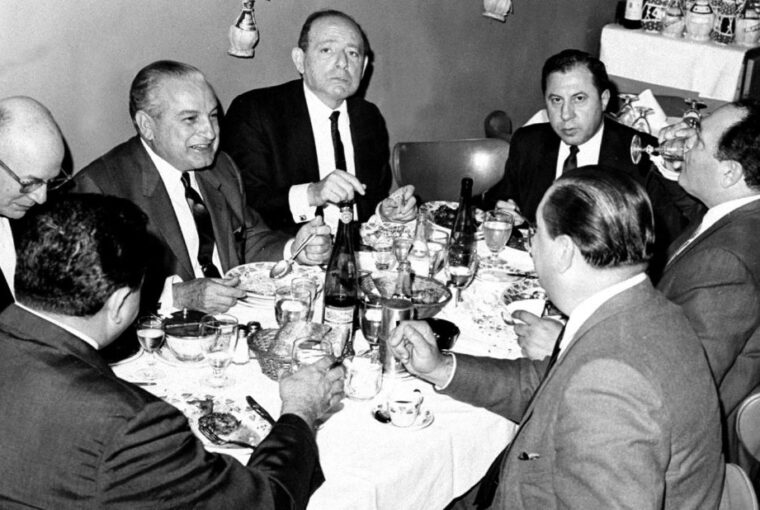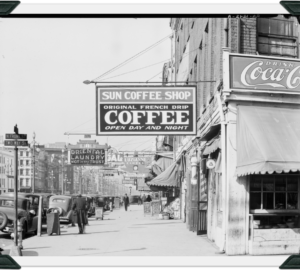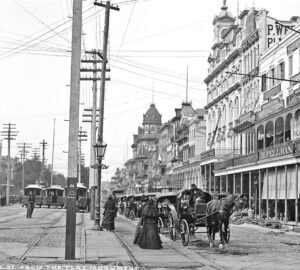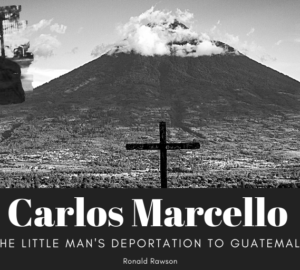If you’re anything like me you probably always figured that the guys writing these books on the Mafia that we all enjoy, really know their shit. Right? Wellllll……!
I’ll take what I read at face value. After all, I’m no expert. I’ll take it at face value until I find something contradictory. Now, that doesn’t mean the new, contradictory, info is correct. Just that it’s something to look into. Sometimes it may just be a little detail, sometimes something more significant. Sometimes the new info turns out to be wrong. Just the way it goes! I always took John H. Davis’s book, Mafia Kingfish, at face value. Until I found one little bit of info that was wrong. One of those little details. Marcello’s wife, Jackie, was pegged as Frank Todaro’s daughter in Mafia Kingfish. She was in fact a Todaro but her father was Joseph Todaro, brother to Frank which would have made her Frank’s niece. Like I said, not a big deal. A little thing. But it got me to wondering what else might be wrong in the book. Now, I’m referring to Marcello’s early life and career. Up to the Kennedy ordeal, which is a whole nutha’ kettle o’fish. I’ve probably said it before but I don’t delve into the subject all that much as there’s way too many rabbit holes to go down. Davis could be completely right or downright wrong on everything. I’ll leave that for others to dig into. So, over the last couple of years of digging into the history of the New Orleans Family I’ve come across a few other things that may have had some nuggets of truth to them in Mafia Kingfish but when bumped against other sources things just don’t hold up. Again, a few little things, a couple more significant things. This is one of those, in my opinion, more significant things.
So, probably a few people saying “Who does this guy think he is?” Well, I consider myself more like a reporter. I’m just reporting to those who are interested on what I find. Again, I’m no expert. The info is out there for anyone to look up on their own. I’m not saying Mafia Kingfish is a total waste. It’s not, but I have come to view it much like I do Wikipedia. A good place to start and get some basic info but if you want details, dig somewhere else. With the exception of the info taken from Mafia Kingfish in the first part of this here story, the rest is taken from various newspapers of the time.
Davis’s version:
There’s not much to it. A couple of paragraphs is all. Davis is also very lacking in details. He starts off saying that in 1929 Carlos made a “spectacular debut as a criminal”. He doesn’t come right out and say it but alludes to the fact that Carlos plans a bank robbery with three others. The bank, in Algiers, is robbed and they get away with $7,000.00. They head to the Marcello family farm (previously Davis explains that they were living in a rundown plantation called Stanton Plantation) where Joseph Marcello, Carlos’s father, agrees to hide the loot for a $400.00 cut of it. They agree and Joseph buries the cash on the property. One of Carlos’s younger brothers, Peter who is 17 years old, gets nervous for his father getting into trouble and runs into town to rat his brother out. The police show up two days later (for some odd reason), find $6,600.00 in cash and then force Joseph to dig up the other $400.00. Joseph was then arrested as an accessory before and after the fact. Carlos, Peter and one of the unnamed accomplices are detained for questioning. The unnamed accomplice folds under questioning and implicates Carlos as the mastermind. Davis ends the story of the incident with everyone being released and charges dropped as the bank was just happy to get their money back. Kinda one of those “Awww, shucks! Boys will be boys” kinda things.
Davis also describes a front page photo of young Carlos (he was 19 at the time) captioned as the mastermind of the operation.

This is what the papers at the time had to say about this robbery:
On Wednesday November 27 1929, three men, unmasked, robbed the Algiers branch of the Canal Bank and Trust Company on Patterson and Vallette streets. They struck as a guard stepped into a back room. One of them stood in the middle of the bank with a sawed off shotgun while the other two, with pistols, forced the tellers to clean out their cash drawers and hand over the loot. A patrolman, George Shorey, apparently entered the bank while the robbery was in progress and was forced against a wall with his hands raised high. The three were reported to fire shots (into the air?) as they departed the bank and piled into a stolen vehicle with another man driving. They escaped with $15,000.00 in cash.
In the late hours of Thursday November 28 the police chased a vehicle with three men in it. After shots were fired by pursuing police the car stopped. The two passengers were able to escape but the driver, 18 year old Nutzie Vaccaro, was held in suspicion of being connected to the robbery.
On Friday November 29 police found the abandoned vehicle used in the robbery about 5 miles from the Marcello farm. (Curiously there’s no mention of Stanton Plantation in Algiers which actually had a reputation before the Marcello’s took residence). It seems the papers would have mentioned it. They do state that the bandits were traced to Marcello’s farm in Belle Chasse which is a town next to Algiers. The place was described as a huge rambling structure of Antebellum days badly in need of paint. One of those few details described by Davis.) Apparently the area was very sandy and left a good trail of tracks. Though the trail was lost on one occasion the cops were able to pick it back up and about two miles into it they found an unspecified amount of the money hidden under a log. The spot had been marked with a clock sitting on top of the log by the thieves so it could be found again later. The trail eventually lead to Joseph Marcello’s place. When police searched the premises they found John Arnold, 33 years old of Boston but now living in Belle Chasse, with two loaded revolvers under a stairwell in a hallway. He was overpowered and arrested without further incident. They also found $7,747.00 in a blue sack. Joseph Marcello was arrested as an accessory before and after the fact and his sons Carlos and Peter were detained as material witnesses. Under questioning Joseph Marcello, 45 years old (He was actually 47 and ID’d as Marcella in some of the stories) claimed innocence saying that on early Thursday morning two men, one of them Arnold, showed up on his doorstep asking if they (the quartet) could stay there and handed him two revolvers and an automatic pistol to keep for them. Joseph said they were carrying two sacks which he suspected was money but didn’t know for sure. They said they would give him $100.00 each to keep his mouth shut about them. Joseph also said that he found a sawed off shotgun hidden under his house Thursday afternoon which he then took and placed in a haystack. It’s at this point that Peter Marcello’s “ratting” to the cops comes in. Fearing that his father was going to be in trouble, Peter tells the detectives that on early Friday morning one of the men demanded that he drive him into town. He said his father Joseph was afraid to refuse the demand and reluctantly agreed to it. Peter told the police that he took the man into New Orleans by way of the ferry and then to Louisiana Street. After counting the money and questioning their suspects the police set out in the afternoon of the 29th to round up other suspects.

A key to a room had been found on Arnold and the cops decided to check it out. There they found Louis Gentry, 18 years old, of Little Rock in bed. On questioning he said that he hadn’t been out of his room for two days as he didn’t have a job. He did admit to sharing adjoining rooms with Arnold. He was taken in for further questioning. The police took Peter Marcello into New Orleans with them in hopes that he could pinpoint the house that he dropped the man off that he had earlier driven. When the police knocked on the door of Earl Friloux’s home his wife Mamie told them that her husband wasn’t home. Before they left however the phone rang. Mamie picked it up, listened and, covering the mouthpiece, told the police that it was her husband and that he was at his sister’s house. They went there and finding Earl they arrested him. Earl Friloux was 24 years old. Under questioning Friloux broke down and confessed to his part in the robbery as well as telling detectives that all the men had planned the robbery in Gentry’s room. They had planned to rob the bank the Tuesday before but couldn’t find a getaway vehicle to steal, which Arnold finally did on Tuesday night. Friloux also related that Gentry and the last man, only ID’d as Blackie, left the Marcello farm late Thursday, going across the Mississippi River in a skiff. The last thing Friloux told them was where to find his part of the robbery loot. “Go back to my sisters. It’s in the back where the watchdog is.” The stash watched over by the dog totaled $1,705.00.
Gentry corroborated Friloux’s story and added that when they got across the river he and Blackie had separated. He said he had left his share of the cash with Arnold but that Blackie had taken his. He further stated that he was the one that covered everyone with the shotgun while Blackie and Arnold cleaned out the tills. Friloux had been waiting in the getaway car.
“I felt like I owned the place!” he told cops.
He apparently also stuffed $900.00 into one of his pockets that had a hole in it as the cash was left behind on the floor of the bank.
Arnold declined to give any specifics and only said
“Well, you fellers got me. Let’s just leave it at that.”
Joseph Marcello, other than admitting that he took the money offered and telling detectives where to dig for it, maintained his innocence.

By the later hours of the night the trio of men had all confessed and Gentry along with Arnold were further ID’d by two bank employees, Ronald James a teller and Edgar Cayard who was the bank manager, as being two of the hold up men.
By December 5 1929 the three had pleaded guilty and were remanded to the Orleans Parish Prison to await sentencing. By December 18 they had been sentenced. Arnold drew a 14 to 28 year sentence. Gentry and Friloux a 9 to 14 year sentence each. By mid December a total of $12,000.00 had been recovered. On January 3 1930 they were transported to Angola to begin serving their sentences. (Justice was swift in those days!).
Though Vaccaro was first suspected to have been a part of the robbery it later turned out to be unrelated. He had been riding around with a little weed on him.
The last bit I found on Joseph Marcello was on December 19 1929 saying he was awaiting trial. I’m assuming things went his way.

The picture Davis claims was in the paper, I suspect, actually came from Carlos’s robbery of an Algiers general grocery store in May 1930 which he did in fact plan. Though Carlos was actually just a side note character in this story it makes me wonder if this incident put the idea for the May robbery in his head.The purpose of the grocery store robbery was to acquire capitol to finance a future……take a guess…..bank robbery! Though it was hardly successful or spectacular (he actually ended up doing several years in Angola for it)it may just have put him on the path to what he became. Story goes that Carlos learned a lot from his first stint in prison. And it did get his picture in the paper. FBI files containing Marcello’s arrest record do show he was arrested on the 29th of November. As an accessory before and after the fact. They also show his name as Collis Marcello. Charges were dismissed on December 3 1929.

Not sure if the rest of the loot was ever recovered or if Blackie was ever caught. He may have been the only successful one of the four.
Now, Davis obviously got some of the details from the story. But how? I find it hard to believe he actually read the news stories of the time and came up with such a different version of events. Did he have someone relate the story and he just rolled with it? That seems more likely to me.Just seems like piss poor research to me. I get the fact that Mafia Kingfish was written way before the advent of the internet but this story, along with a couple others Davis screwed up, was well covered in the papers of the period.
Another possibility, maybe the story just didn’t fit what he wanted his story to be?
- What’s This Silver Dollar Shit! That’s Sam Carollo! - June 26, 2023
- New Orleans Sets a Record - April 11, 2022
- Carlos Marcello Takes A Vacation: The Little Man’s Deportation to Guatemala Pt. 2 - June 11, 2021









